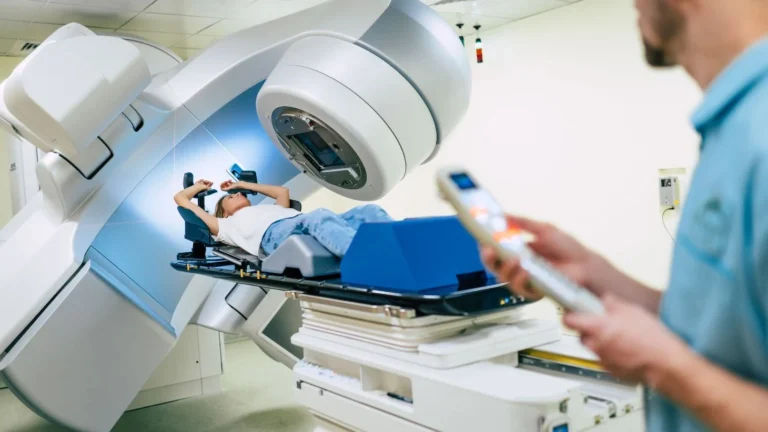
Cancer is one of the most feared diseases worldwide, and with fear comes misinformation. Myths about cancer often create unnecessary anxiety or false hope and can sometimes mislead people from taking proper preventive or treatment measures. It’s essential to differentiate between scientifically-backed facts and myths that persist. In this post, we’ll debunk some of the most common cancer myths and explain what science really says about them.
Myth 1: Cancer Is Always Fatal
Fact:
While cancer is a serious disease, it is not a death sentence. Advances in early detection, treatment options, and therapies have dramatically improved survival rates for many types of cancer. For example, the five-year survival rate for breast, prostate, and skin cancer can be as high as 90% or more when detected early. Treatments such as immunotherapy, targeted therapies, and surgery are helping patients live longer, and in some cases, become completely cancer-free.
Key Takeaway:
With early detection and modern treatment, many people survive cancer and live long, healthy lives.
Myth 2: Using Antiperspirants or Deodorants Causes Breast Cancer
Fact:
This myth suggests that chemicals in antiperspirants, like aluminum or parabens, can be absorbed into the skin and lead to breast cancer by interacting with hormones. However, no scientific evidence supports this claim. Multiple studies, including those by the American Cancer Society and National Cancer Institute, have concluded that there is no definitive link between antiperspirants and breast cancer.
Key Takeaway:
There is no proven connection between using antiperspirants and an increased risk of breast cancer.
Myth 3: Eating Sugar Feeds Cancer Cells
Fact:
This is a commonly misunderstood concept. While all cells, including cancer cells, rely on glucose (a form of sugar) for energy, eating sugar does not directly cause cancer to grow faster. However, a diet high in refined sugars can lead to obesity, which is a known risk factor for many cancers. It’s the overall dietary habits and not sugar alone that impact cancer risk.
Key Takeaway:
Moderation is key. While sugar doesn’t “feed” cancer, a balanced diet is crucial to maintaining overall health and reducing cancer risk.
Myth 4: Cancer Is Contagious
Fact:
Cancer itself is not contagious. You cannot “catch” cancer from another person through physical contact, saliva, or shared environments. However, some viruses associated with cancer, like human papillomavirus (HPV) and hepatitis B or C, can be transmitted between people. These viruses can increase the risk of developing cancer over time, such as cervical cancer or liver cancer.
Key Takeaway:
Cancer is not infectious, but viruses linked to cancer can spread. Vaccination and safe practices can reduce the risk of virus-related cancers.
Myth 5: If No One in My Family Has Cancer, I Won't Get It
Fact:
While family history and genetics play a role in cancer risk, most cancers occur in people with no family history. In fact, only about 5-10% of cancers are related to inherited genetic mutations. Environmental factors, lifestyle choices (such as smoking, diet, and sun exposure), and age are more common contributors to cancer risk.
Key Takeaway:
Even without a family history of cancer, you can still develop it. Lifestyle factors and regular screenings are essential for everyone.
Myth 6: Cell Phones Cause Cancer
Fact:
This widely circulated myth is based on concerns that the radiation emitted by cell phones may lead to brain cancer. However, cell phones emit non-ionizing radiation, which does not damage DNA or lead to cancer. Numerous studies have investigated this link, and to date, there is no conclusive evidence that cell phone use increases the risk of cancer, including brain cancer.
Key Takeaway:
There is no proven scientific link between regular cell phone use and cancer.
Myth 7: Superfoods Can Cure Cancer
Fact:
While a healthy diet can help prevent cancer and support overall well-being, there is no specific “superfood” that can cure or prevent cancer on its own. Foods rich in antioxidants, such as berries, spinach, and nuts, may help protect cells from damage, but cancer is a complex disease influenced by various factors. Diet is just one component of a broader prevention or treatment strategy.
Key Takeaway:
No single food can cure cancer, but a well-balanced diet rich in fruits, vegetables, and whole grains can help reduce the risk and support treatment.
Myth 8: Cancer Treatment Is Worse Than the Disease
Fact:
Some people fear that chemotherapy, radiation, or other cancer treatments will cause unbearable side effects, making treatment worse than the cancer itself. While treatments can have side effects, they are often temporary and have greatly improved over the years. Modern therapies are better at targeting cancer cells and sparing healthy tissues, reducing the severity of side effects. Moreover, advances in supportive care help manage these side effects effectively.
Key Takeaway:
Treatment is essential for beating cancer, and advancements have made therapies more tolerable. Always discuss potential side effects with your healthcare team for a balanced perspective.
Myth 9: A Biopsy Can Spread Cancer
Fact:
This myth stems from the fear that a biopsy—removing tissue to test for cancer—can cause cancer cells to spread. However, this is not true. Biopsies are a standard and safe method used to diagnose cancer. Modern surgical techniques are designed to minimize the risk of spreading cancer cells, and there’s no evidence suggesting that biopsies lead to cancer spreading.
Key Takeaway:
Biopsies are critical for diagnosing cancer and do not increase the risk of cancer spreading.
Myth 10: Alternative Treatments Are as Effective as Conventional Cancer Therapy
Fact:
While alternative therapies (such as herbs, supplements, or acupuncture) may provide relief from certain symptoms or help with treatment side effects, they are not a substitute for conventional cancer treatments like surgery, chemotherapy, or radiation. Relying solely on alternative treatments has been shown to reduce survival rates and may lead to worse outcomes. The most effective approach often combines conventional treatment with complementary therapies to support overall health.
Key Takeaway:
Alternative treatments should complement, not replace, conventional cancer therapy. Always consult with your doctor before pursuing alternative treatments.
Conclusion
Misinformation about cancer can lead to unnecessary fear or prevent people from seeking proper medical care. By debunking these myths, we can better understand what truly affects cancer risk, prevention, and treatment. Trusting scientific research, maintaining healthy lifestyle habits, and consulting healthcare professionals are the most effective ways to reduce cancer risk and make informed decisions about care.
